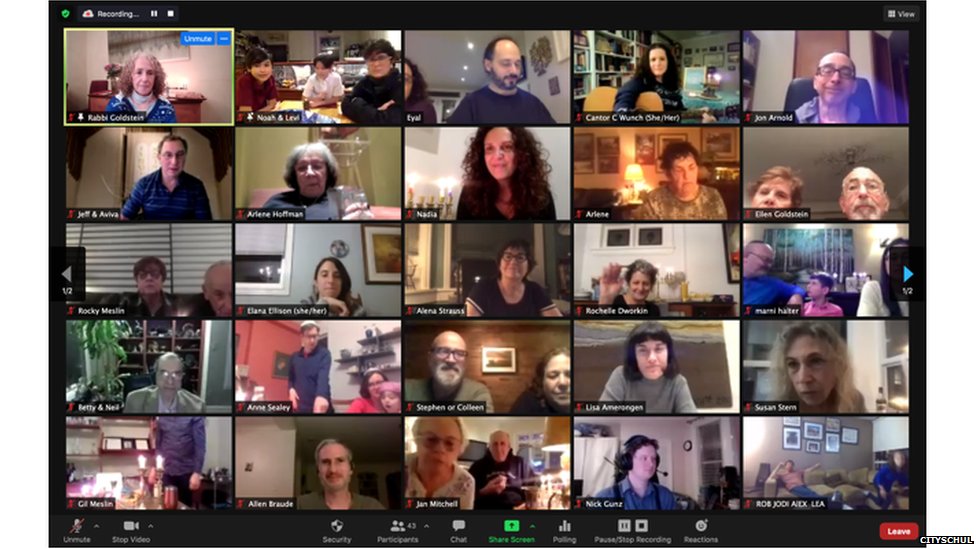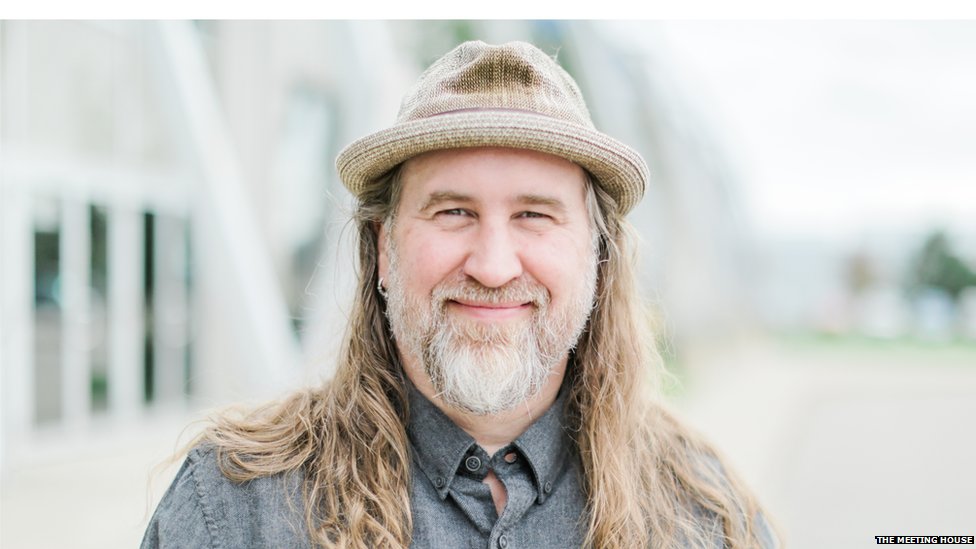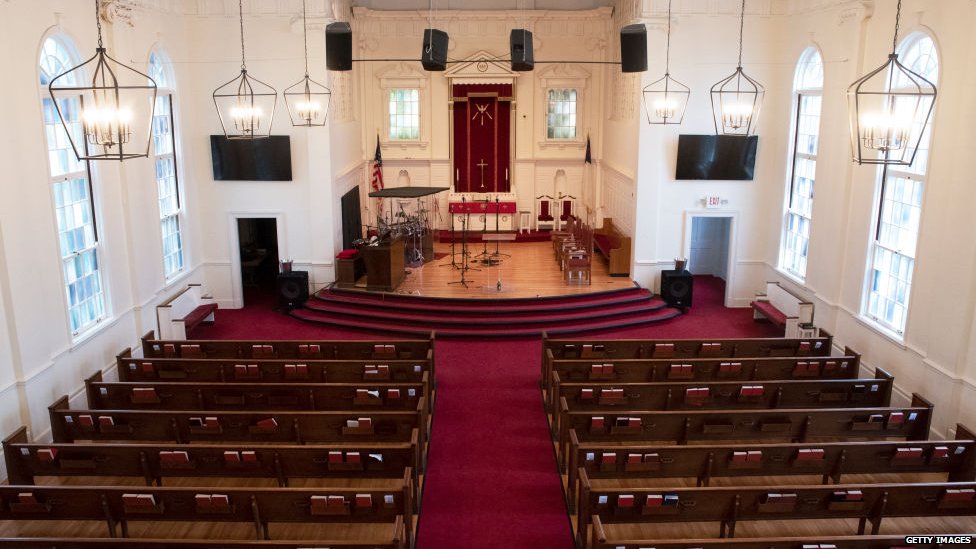
Like many last March, the pandemic took Misha Allard by surprise.
The 36-year-old from Toronto, Canada, had recently quit her corporate job to pursue an acting career - something she felt was her "calling".
With productions halted and no work in sight, Ms Allard decided to use the spring to explore another calling - her growing interest in spirituality.
"I guess I kind of felt I was being led all along," she says, looking back with hindsight.
Like many millennials, Ms Allard had not attended church in years. She went every Sunday as a child, but when she hit her teenage years, she lost interest.
Now, with nothing but time on her hands, she decided she would revisit her faith and see if she could find it a home. The pandemic had caused most churches to go from in-person worship to online services, which made it easy for her to try out different denominations.
"I could just test different styles and figure out what fit best with me and my belief system and what made me feel the best," she says.
One of those churches was the Meeting House, a protestant church that a friend had told her was "a church for people who don't like church".
"I happened to attend their Sunday service, and they were doing a four-part series on basically love, and the fact that Jesus is love, and that so resonated with me, because I really believe that, and now more than ever do we really need love," she says.
Ms Allard has since become a regular member, attending at least one online service a week.
"In a time when a lot of people are feeling alienated and isolated, I feel so grateful to have found this group of people."
For decades, religious attendance in most parts of the world has been declining. A 2018 survey by the Pew Research Center has found that globally, adults under 40 are the least likely to consider themselves religious, and a 2019 survey by the same organisation found that the number of American adults who consider themselves non-religious is growing.
But the pandemic may just be reversing that trend, leaders from several faiths say, in part because the move to online services has helped make it easier for people to participate.

"We've seen not only the numbers grow, but the kind of people, the people who wouldn't typically feel comfortable even going to church, or setting a foot inside a new church," says Bruxey Carvey, the lead pastor at the Meeting House.
"Covid has slowed us down and destabilised our regular routine. It has become an exploratory time. People are developing new habits, new interests, and finding new ways of just being in this world."
Yahya Momla, an Imam at the BC Muslim Association in Richmond, British Columbia, said more people have been connecting with the mosque during the pandemic, and giving to the mosque's charitable causes.
"One thing we've been noticing is new donors - first-time donors who are not on our donor list - are donating," he says. "We can only assume they've heard about us online."
Rabbi Elyse Goldstein, who leads City Shul, a Reformed Jewish synagogue in Toronto, says she has seen attendance grow, especially among young adults.
"I'm constantly shocked - we have lots of new members. Who would join a synagogue during a pandemic?"
Rabbi Goldstein says she's also seen an uptick in young people with no familial connections to Judaism interested in converting, something she finds surprising. More typically, people convert when they're a bit older if they are getting married to a Jewish spouse.
"I think it is an anchor in this world. We are all being tossed on stormy seas. and if you look out on the horizon and see a boat that seems to be sturdy, and steady, you might want to get on. I think people look at Judaism as a very ancient tradition that's very sturdy, very steady in stormy waters."
The pandemic has not only fuelled people's interest in spirituality, but the necessary move to online services has also made it easier for people to explore these feelings, she says.
Ms Allard agrees: "There's like an anxiety in meeting all these new people, and having all these expectations."
"But if you're online and you're in the comfort of your own home, and you can just hop in and hop out at your leisure, and just explore how you feel about it… one step at a time."
The success of online services has led many religious leaders to ask - what's next?

Rabbi Goldstein's synagogue had never done an online service before the pandemic, and now she says she and the leadership team are discussing how they can continue whenever the world returns to a new normal.
Pastor Bruxey is having the same conversation. While the Meeting House did have a podcast before the pandemic, it did not regularly stream services.
"We have said moving forward, we will be a both/and church, not an either/or church. We will love being together in person - it will be so exciting when we return to that. At the same time, we see the benefit to being online, and I think we will carry the lessons with us into the future."
"time" - Google News
January 03, 2021 at 08:35PM
https://ift.tt/3b4hA1W
Faith and spirituality in the time of Covid - BBC News
"time" - Google News
https://ift.tt/3f5iuuC

No comments:
Post a Comment